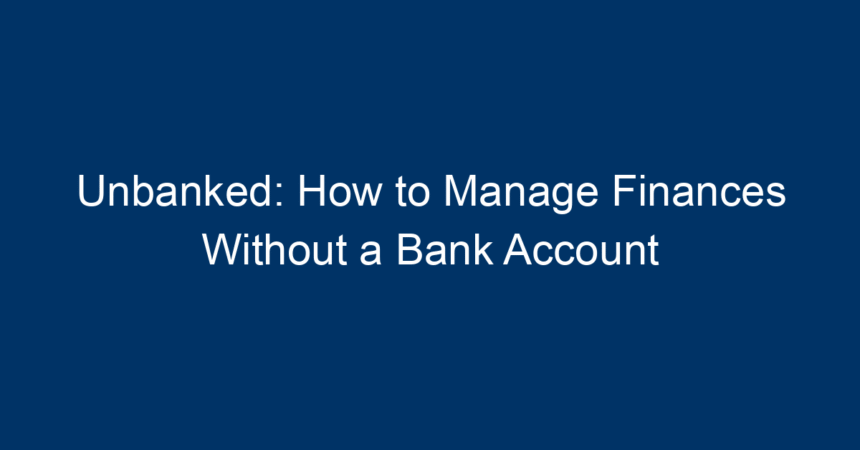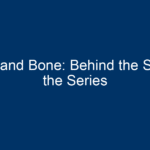In the modern financial landscape, being "unbanked" is more common than many realize. Millions of people navigate their finances without relying on traditional banking institutions for a variety of reasons, including a lack of access, distrust, or personal choice. In this article, we will explore the challenges faced by the unbanked and provide actionable strategies for managing finances effectively without a bank account.
Understanding the Unbanked Population
Who Are the Unbanked?
The unbanked are individuals who do not have a checking or savings account at a financial institution. According to the FDIC’s 2021 report, approximately 5.4% of U.S. households are unbanked, a figure that highlights significant financial exclusion. The reasons for remaining unbanked vary, but they often include:
- High fees: The costs associated with maintaining accounts can be prohibitive.
- Lack of trust: Many people trust alternative financial services more than traditional banks.
- Inaccessibility: Geographic or technological barriers can hinder access to banking services.
The Impact of Being Unbanked
Living without a bank account can lead to financial hardships. Unbanked individuals may struggle with higher costs for financial transactions, limited access to credit, and difficulties in making payments. Yet, being unbanked also encourages creative financial management strategies.
Strategies for Managing Finances as the Unbanked
1. Cash Management
Using Cash Effectively
For those who are unbanked, cash is king. Understanding how to manage cash effectively is essential. Here’s how you can make the most of your cash transactions:
- Budget Wisely: Create a strict budget because cash is finite. Use envelopes to allocate funds for specific expenses such as groceries, bills, and entertainment.
- Regularly Review Spending: At the end of each week, assess your cash usage to identify patterns and adjust your budget accordingly.
2. Prepaid Debit Cards
Exploring Prepaid Options
Prepaid debit cards offer a way to manage finances without a traditional bank account. They provide the convenience of debit cards without needing a checking account. Here are some benefits:
- Controlled Spending: Prepaid cards allow you to load only what you need, preventing overspending.
- Online Purchases: They can often be used for online shopping, making them a versatile option.
- Direct Deposit: Some prepaid cards allow for direct deposit of paychecks, which can streamline your income management.
3. Alternative Financial Services
Utilizing Alternative Options
While avoiding banks, many unbanked individuals turn to alternative financial services. These include:
- Credit Unions: Local credit unions often offer better rates and lower fees than traditional banks.
- Payday Loans and Title Loans: Though they come with high-interest rates, these services are options for short-term cash needs. Use them sparingly to avoid debt traps.
- Check-Cashing Services: These allow you to cash paychecks without a bank account. However, be mindful of the fees they charge.
4. Digital Wallets and Mobile Payments
Embracing Technology
The rise of smartphones has led to the popularity of digital wallets and mobile payment services, even among the unbanked. Services like PayPal, Venmo, and Cash App allow users to:
- Send and Receive Money: Easily transact without needing cash.
- Budget and Track Spending: Many mobile payment apps provide features for budget tracking and spending analysis.
- Link to Prepaid Cards: If you prefer, you can link these services to prepaid cards for added convenience.
5. Managing Bills and Payments
Staying Organized
Managing bills is a significant responsibility for the unbanked. Here’s how to streamline your bill payments:
- Automate when Possible: If you receive bills electronically, some companies allow you to set up automatic payments from a prepaid card.
- Use Money Orders: When paying bills, consider using money orders as a secure alternative to cash or checks.
- Negotiate Payment Terms: If unable to pay a bill in full, don’t hesitate to contact service providers. Many companies offer payment plans to accommodate different financial situations.
6. Building Credit Without a Bank Account
Alternative Ways to Establish Credit
Building a good credit score can be challenging for the unbanked, but it’s crucial for larger purchases and loan applications. Here are some methods to consider:
- Secured Credit Cards: These cards require a cash deposit as collateral but can help build your credit history.
- Authorized User Status: If someone you trust has a credit card, ask to be added as an authorized user. Their payment history can positively influence your credit score.
- Credit Builder Loans: Some local organizations and credit unions offer loans specifically for building credit. These small loans are held in a savings account until paid off.
The Benefits of Being Unbanked
Flexibility and Independence
While being unbanked presents challenges, it also fosters independence. Many unbanked individuals develop strong budgeting skills and become adept at managing their finances creatively.
Increased Financial Awareness
Living without a bank account can heighten awareness of financial habits. It encourages individuals to carefully track their spending and find alternative, often lower-cost financial solutions.
Conclusion: Thriving as the Unbanked
Being unbanked doesn’t have to mean being financially deprived. By employing smart cash management strategies, taking advantage of prepaid options, and utilizing alternative financial services, individuals can effectively manage their finances.
Staying informed about your options and using the resources available can help you achieve financial stability without a traditional bank account. Whether you’re uncomfortable with conventional banks or simply want to take charge of your financial destiny, there are myriad ways to thrive without being tethered to a banking institution. As the financial landscape continues to evolve, those who are unbanked have more tools than ever to chart their own course toward financial empowerment.
By embracing flexible alternatives, you can transform the challenges of being unbanked into opportunities for creativity and growth. Remember, managing your finances without a bank account is not just possible; it can also lead to a more empowered and informed financial life.




